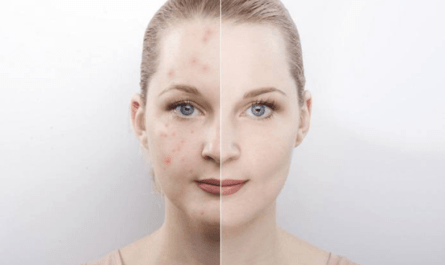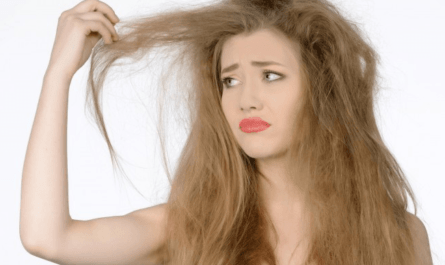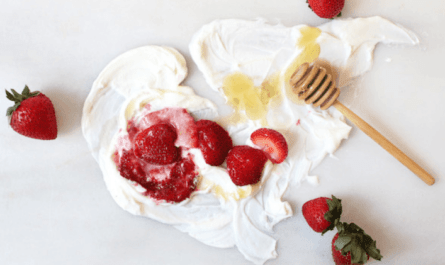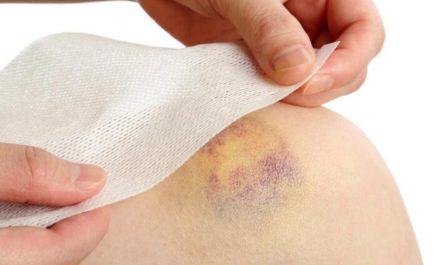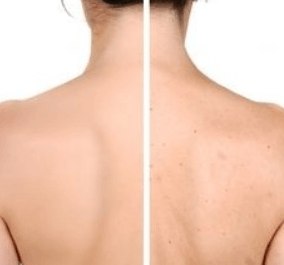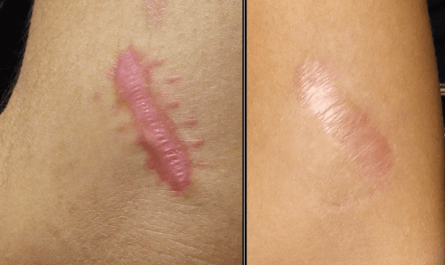Are you struggling with a painful and unsightly pimple on your lip? Don’t worry; you are not alone. Pimples on the lip are a common skin issue affecting many people, regardless of age or gender. This article will discuss the causes, treatment, and prevention of pimples on the lip.
What are pimples on the lip?
A pimple on the lip is a small, red, inflamed bump that appears on or around the lip. Pimples on the lip can be painful and unsightly, especially when they occur in clusters or become infected. In some cases, pimples on the lip can also cause swelling, itching, and discomfort.
The symptoms of pimples on the lip include:
- Small, red, and inflamed bumps on or around the lip
- Pain or tenderness around the pimple
- Swelling and itching around the pimple
- Discomfort when eating, drinking, or speaking
Types of pimples on the lip
Several types of pimples can occur on the lip, each with its own symptoms and treatments.
1. Cold sores
Cold sores are caused by the herpes simplex virus and are characterized by small, fluid-filled blisters that typically appear on or around the lips. Symptoms may include itching, burning, or tingling before the blisters appear, as well as pain, swelling, and crusting once they do.
2. Acne
Acne can occur on the lip and other parts of the face and body. Symptoms may include blackheads, whiteheads, pustules, or cysts, as well as redness and inflammation.
3. Fordyce spots
Fordyce spots are small, white, or yellow bumps on the lips or other areas of the body. They are caused by overactive sebaceous glands and are typically harmless.
4. Mucoceles
Mucoceles are small, fluid-filled cysts that form on the lip or in the mouth. They are typically caused by trauma or injury to the area and are usually painless.
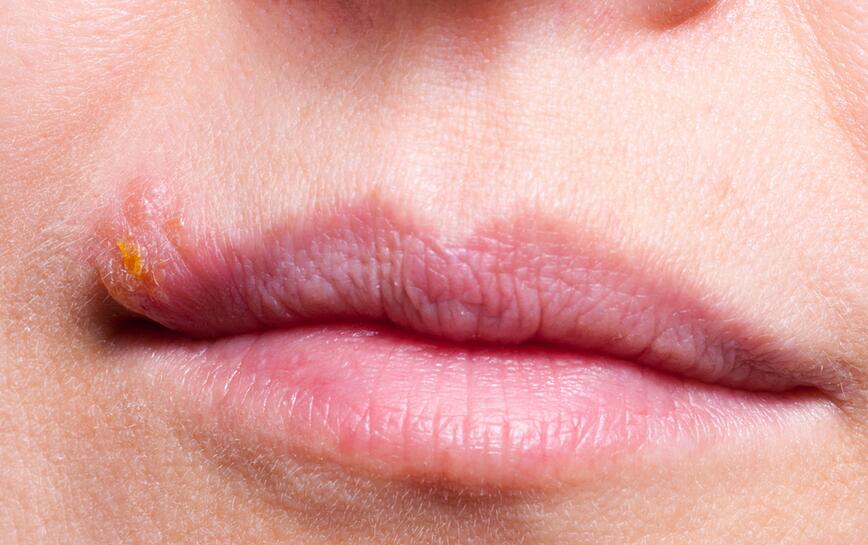
11 Common Causes of pimples on the lip
Here are common causes of pimples on the lip:
1. Hormonal Imbalances
Hormonal imbalances are often a significant factor contributing to the development of lip pimples. During puberty, the body undergoes hormonal fluctuations that can increase sebum production. The excess sebum can clog the pores around the lip area, leading to the formation of pimples.
2. Poor Lip Care Habits
Inadequate lip care habits can also play a pivotal role in the occurrence of lip pimples. If you frequently touch your lips with unwashed hands or use expired lip products, you risk transferring bacteria to your lips, potentially causing breakouts.
3. Lip Products Containing Harsh Chemicals
Some lip care products may contain harsh chemicals or artificial ingredients that can irritate the delicate skin on the lips. Individuals with sensitive skin might experience an allergic reaction to these products, forming pimples.
4. Dietary Influences
Your diet can significantly impact your skin’s health, and the lip area is no exception. Consuming excessively greasy and sugary foods can exacerbate acne, including lip pimples. Incorporating a balanced and nutritious diet can help minimize the occurrence of these pesky pimples.
5. Stress
Stress can disrupts the hormonal balance in the body, which can trigger acne breakouts, including on the lips. Finding effective stress-relief techniques can contribute to healthier skin and reduce the likelihood of pimples on the lip.
6. Hormonal Changes During Menstruation
For many women, hormonal fluctuations during the menstrual cycle can cause an increase in sebum production, leading to lip pimples. Understanding and managing these hormonal changes can help prevent breakouts during this time.
7. Smoking
Smoking can harm overall skin health, including the lip area. The toxins in tobacco smoke can irritate the lips and promote acne formation. Quitting smoking or reducing tobacco intake can significantly improve lip health.
8. Environmental Factors
Exposure to environmental pollutants and harsh weather conditions can also contribute to the development of lip pimples. Protecting your lips with lip balms and avoiding polluted areas can help minimize the impact of these external factors.
9. Oral Hygiene
Maintaining good oral hygiene is essential for preventing lip pimples. Bacteria from your mouth can transfer to your lips, potentially causing breakouts. Make sure to brush your teeth regularly and gently exfoliate your lips to keep them clean and healthy.
10. Lip Infections
Lip infections, such as cold sores caused by the herpes simplex virus, can lead to painful and persistent lip pimples. Proper treatment and prevention of infections are crucial in managing lip-related issues.
11. Allergies
Certain allergies to foods, lip products, or environmental factors can manifest as lip pimples. Identifying and avoiding allergens can help prevent these unwanted eruptions.
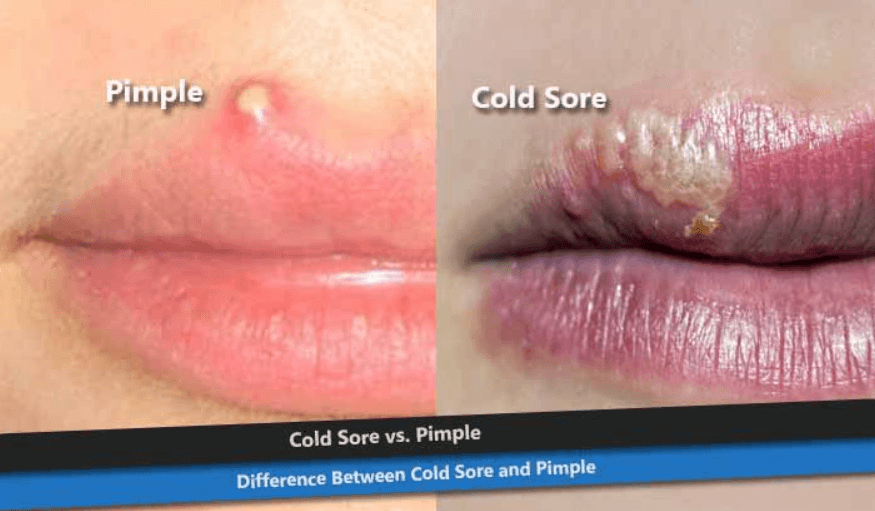
12 Home Remedies for Pimple on Lip
Here are some natural remedies that may help to reduce the symptoms of pimples on the lip:
1. Cold Compress
A cold compress is one of the simplest and most effective remedies for reducing the inflammation and redness associated with lip pimples. The cold temperature constricts the blood vessels, reducing blood flow to the affected area, and provides immediate relief from discomfort.
- Take an ice pack or wrap a few ice cubes in a clean cloth.
- Gently press the cold compress on the pimple for 5-10 minutes.
- Remove the compress and wait for a few minutes before reapplying, if needed.
- Repeat this process several times a day until the inflammation subsides.
2. Tea Tree Oil
Tea tree oil is a powerful natural antiseptic that possesses excellent properties for treating acne and lip pimples. It contains terpinen-4-ol, which has potent antibacterial and anti-inflammatory effects, making it an effective remedy for reducing lip pimples and preventing further breakouts.
- Cleanse the affected area with a mild cleanser and pat it dry.
- Dip a cotton swab into a few drops of tea tree oil.
- Gently apply the oil to the pimple, avoiding the surrounding skin.
- Leave it on overnight or for at least 30 minutes before rinsing off with water.
- Repeat this process once or twice daily until the pimple disappears.
3. Aloe Vera Gel
Aloe vera gel is renowned for its skin-soothing and healing properties. It contains enzymes, vitamins, and minerals that promote skin repair and reduce inflammation, making it an ideal remedy for treating lip pimples.
- Extract fresh aloe vera gel from an aloe leaf or store-bought aloe vera gel.
- Apply a thin gel layer directly to the pimple and the surrounding area.
- Let it sit for 15-20 minutes before rinsing it off with lukewarm water.
- Repeat this process two to three times a day for best results.
4. Honey and Cinnamon Mask
The combination of honey and cinnamon creates a powerful remedy for treating lip pimples. Honey is a natural antibacterial agent, while cinnamon is rich in antioxidants, making this mask effective in reducing redness and swelling.
- Mix one tablespoon of honey with half a teaspoon of cinnamon powder to form a paste.
- Apply the paste to the pimple and leave it on for 15-20 minutes.
- Rinse it off with warm water and pat your lips dry.
- Use this mask once daily until the pimple heals.
5. Apple Cider Vinegar
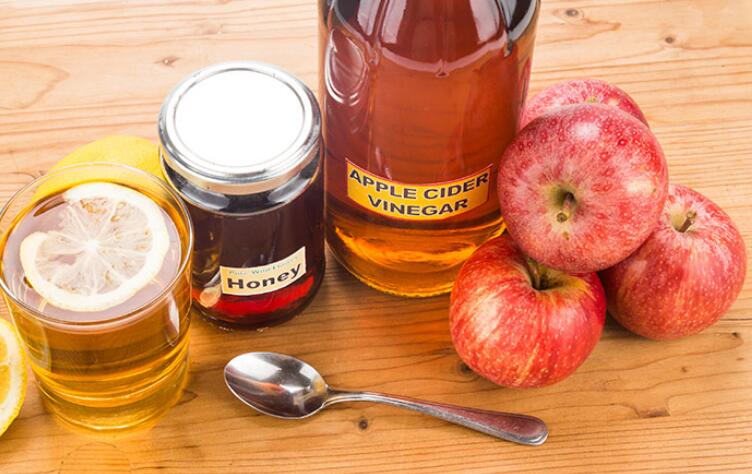
Apple cider vinegar is a natural remedy with acetic acid, which helps restore the skin’s pH balance and acts as a natural skin toner. This remedy is beneficial for drying out lip pimples and promoting faster healing.
- Dilute apple cider vinegar with an equal amount of water.
- Dip a cotton ball into the diluted solution and apply it to the pimple.
- Let it sit for a few minutes before rinsing it off with water.
- Repeat this process once daily until the pimple subsides.
6. Turmeric Paste
Turmeric contains curcumin, a potent anti-inflammatory compound that helps soothe the skin and reduce the size of lip pimples. This natural remedy is excellent for those seeking a gentle and effective treatment.
- Mix turmeric powder with water to create a thick paste.
- Apply the paste to the pimple and leave it on for 10-15 minutes.
- Rinse it off with lukewarm water and pat your lips dry.
- Use this remedy once daily until the pimple disappears.
7. Witch Hazel
Witch hazel is a natural astringent with skin-cleansing properties. It helps reduce excess oil production and keeps the skin clear and blemishes-free.
- Soak a cotton ball in witch hazel.
- Gently dab the cotton ball on the pimple and the surrounding area.
- Let it air dry, and avoid rinsing it off.
- Use this remedy twice daily until the pimple diminishes.
8. Lemon Juice
Lemon juice contains citric acid, a natural exfoliant that helps unclog pores and brightens the skin around the pimple. This remedy can be highly effective in reducing the appearance of lip pimples.
- Cut a fresh lemon and squeeze out the juice.
- Dip a cotton swab into the lemon juice and apply it to the pimple.
- Leave it on for 10-15 minutes before rinsing it off with water.
- Use this remedy once daily until the pimple improves.
9. Baking Soda
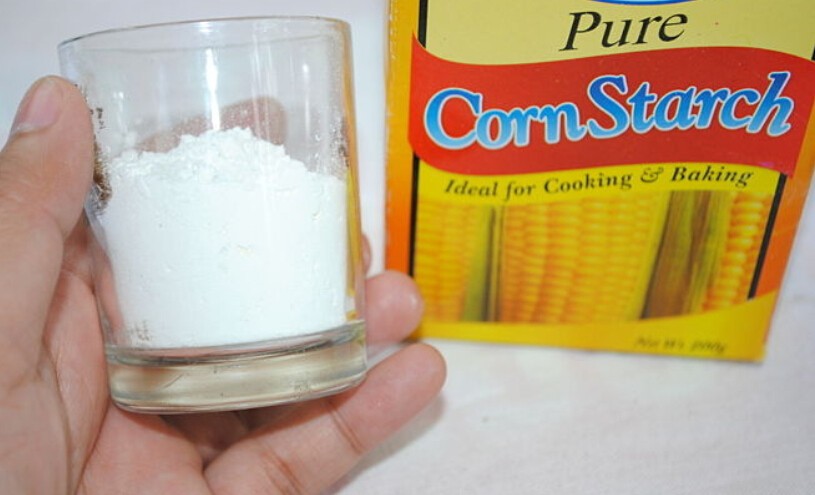
Baking soda is a gentle exfoliating agent that helps remove dead skin cells and restore the skin’s pH balance. This remedy is suitable for those with sensitive skin.
- Mix baking soda with water to create a thick paste.
- Apply the paste to the pimple and leave it on for 5-10 minutes.
- Rinse it off with water and pat your lips dry.
- Use this remedy once daily until the pimple heals.
10. Coconut Oil
Coconut oil is a natural moisturizer with anti-inflammatory properties that promote skin repair and healing. It is a gentle and soothing remedy for lip pimples.
- Take a small amount of coconut oil and warm it between your fingers.
- Apply the oil to the pimple and the surrounding area.
- Leave it on overnight or for at least 30 minutes before rinsing off with water.
- Use this remedy once or twice daily until the pimple disappears.
11. Cucumber Slices
Cucumber slices have a cooling effect and are rich in hydrating properties, making them an excellent remedy for soothing and rejuvenating the skin.
- Cut a fresh cucumber into thin slices.
- Place the cucumber slices on the affected area and let them sit for 15-20 minutes.
- Remove the slices and rinse your lips with cool water.
- Use this remedy twice daily for the best results.
12. Oatmeal Mask
Oatmeal provides gentle exfoliation and helps reduce skin irritation, making it an effective natural remedy for lip pimples.
- Cook oatmeal according to the package instructions and let it cool down.
- Apply the cooked oatmeal to the pimple and surrounding area.
- Leave it on for 15-20 minutes before rinsing it with water.
- Use this mask once daily until the pimple subsides.
Prevention of pimples on the lip
Here are some preventive measures to help avoid pimples on the lip:
- Keep lips clean: Regularly clean your lips with a mild cleanser or water. Avoid harsh soaps or products that can dry out or irritate the skin.
- Avoid touching or picking at your lips: Touching your lips with dirty hands or picking at them can introduce bacteria and lead to breakouts.
- Hydrate: Drink plenty of water to hydrate your skin, including your lips. Well-hydrated skin is less prone to acne.
- Use lip balm or moisturizer: A non-comedogenic lip balm or moisturizer can help keep your lips hydrated and prevent dryness that may contribute to pimples.
- Avoid oily or greasy products: Be cautious with oily or greasy lip products, as they can clog pores and lead to breakouts. Look for oil-free or non-comedogenic lip products.
- Check your toothpaste: Some toothpaste formulations contain ingredients that can irritate the skin around the lips. If you notice breakouts around your mouth, consider using toothpaste without sodium lauryl sulfate (SLS) or switching to a natural toothpaste.
- Don’t share lip products: Sharing lip balms, lipsticks, or other lip products can transfer bacteria and increase the risk of developing pimples.
- Avoid allergic triggers: If you have allergies, be mindful of potential triggers that could cause lip irritation and lead to breakouts. Common allergens include certain lip products, foods, or environmental factors.
- Watch your diet: A balanced and healthy diet can improve skin health. Limit your sugary and greasy foods, as they can potentially exacerbate pimples.
- Stress management: High-stress levels can trigger hormonal imbalances, which might contribute to acne. Practice stress-reduction techniques, such as meditation, exercise, or hobbies, to keep stress levels in check.
- Avoid squeezing pimples: Squeezing or popping lip pimples can introduce bacteria and increase inflammation. It can also lead to scarring or further breakouts.
Is lip pimples the same as cold sores?
No, lip pimples and cold sores are not the same; they are different skin conditions with distinct causes and characteristics.
Lip Pimples:
- Lip pimples are a type of acne that occurs on or around the lips. The clogging of hair follicles or pores with oil, dead skin cells, and bacteria causes them.
- Lip pimples can appear as small red or white bumps, similar to other types of acne.
- They are not contagious and are not caused by a viral infection.
- Lip pimples can be triggered by hormonal changes, excessive oil production, poor hygiene, or the use of comedogenic lip products.
Cold Sores (Herpes Labialis):
- Cold sores, also known as fever blisters or herpes labialis, are caused by the herpes simplex virus (usually HSV-1, although HSV-2 can also cause them).
- Cold sores typically appear as small, fluid-filled blisters on or around the lips, often with a red base.
- They are highly contagious and can be transmitted through direct contact, such as kissing or sharing utensils or lip products.
- Cold sores are a viral infection, and once infected, the virus remains dormant in the body and can cause recurrent outbreaks triggered by factors like stress, illness, or sun exposure.
If you are unsure about the nature of a lip lesion, it’s best to consult a healthcare professional for an accurate diagnosis and appropriate treatment.
Common Questions:
1. Are pimples on the lip contagious?
No, lip pimples are not contagious. They are caused by various internal and external factors rather than contagious agents.
2. Can lip balm cause pimples on the lip?
Yes, if lip balm or other personal care products contain comedogenic ingredients, they can clog the pores and lead to pimples on the lip.
3. How long do pimples on the lip last?
The duration of pimples on the lip varies depending on the severity of the condition. Mild cases may resolve within a few days, while severe or recurrent cases may last several weeks or months.
4. Should I pop a lip pimple?
It’s best to avoid popping lip pimples, as it can lead to further irritation, infection, and scarring. Let them heal naturally.
5. When to see a doctor?
It is recommended to see a doctor if:
- The pimples on the lip are severe or recurrent
- Other symptoms, such as fever and chills, accompany the pimples
- The pimples are spreading to other areas of the face or body

